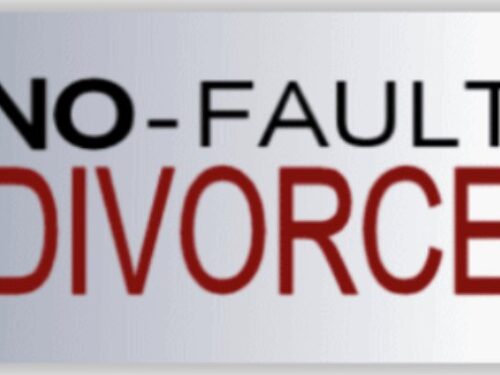
Does a Divorce need to be a negative experience?
Our current Divorce laws were introduced in 1969. A lots happened since then and our society has changed considerably and for many years Family Lawyers have been protesting for change on the basis our current laws cause more harm to divorcing couples than good.
What is the current situation?
If you are seeking a divorce today and want that process to commence sooner rather than later then you have to be able to demonstrate that your spouse has either had a sexual relationship with another person or their behaviour has been so unreasonable you cannot be expected to live with them. Both being of an accusatory nature and such particulars having to be recorded within formal court papers which you are then asking that other person to agree to.
Now put that in the context of a young family where a couple have come to the conclusion subsequent to lock down that they are just no longer compatible, fallen out of love. Yes there have been some arguments along the way but in essence they just want to Divorce and go their separate ways, make the process as simple as possible for the sake of the children.
You then go off to seek your advice to be told that’s not possible. You have to make accusations ie blame your spouse for your marriage coming to an end. We explain that we can make the statement of case extremely sensitive and even share the Divorce petition with your ex before it goes to court but ultimately you have to blame them. My experience is this is a bitter pill to take for your ex and can instill some insecurities and trust issues behind such accusations being made, being not a good start to an already difficult process. Critics of the existing system say that assigning blame or fault does not help a couple reach agreement over all the issues that need to be addressed during a divorce or dissolution, such as agreements for children and financial affairs.
Where children are involved, it is particularly important to try and reduce conflict and animosity so that a couple can work together to co parent them effectively in moving forward.
However, this has at last been recognized by our law makers and I am pleased to confirm that In April 2022, the law regarding divorce is set to change to allow couples to divorce without any blame attaching to either party.
The Divorce, Dissolution and Separation Bill has been given Royal Assent and is set to be implemented in April 2022.
What will change when the new Act comes into effect?
When the new Act comes into force, a couple will simply be able to state that their relationship has irretrievably broken down and request a divorce or dissolution.
They will be able to put forward a joint statement stating that or alternatively one of them can make the allegation. No further evidence will be needed, so there will not be a requirement to show any fault.
Application for a divorce will be able to be made online, with no need for the other party to defend the petition.
Once a divorce application has been made, the applicant will need to wait 20 weeks after the application has been served on the other party.
After this, they will be able to apply for a conditional order. Six weeks after receipt of the conditional order, a final order can be applied for. The timescale is designed to give the parties time to reflect on their decision.
When should you divorce?
You may want to go ahead with a divorce or dissolution now, or you may be wondering if you should wait until the new Act becomes law.
If you have recently separated from your spouse or civil partner and they do not want a divorce or dissolution, then in theory you might have to wait five years if they have not committed adultery, unless you are willing to allege unreasonable behaviour.
However, if you were to wait until the new Act comes in, you would not have to make any allegations as to behaviour or wait any longer for a divorce or dissolution.
However if you are currently thinking of waiting 2 years separation with consent before you petition yu may find this will no longer be relevant come next April.
What else needs to happen in a divorce or dissolution?
It is important to deal with other issues such as financial affairs and children’s agreements as well as the actual divorce or dissolution. It may well be in your interests to wait until you have a financial agreement or child arrangements agreement in place until you finalise your divorce or dissolution.
Ultimately Divorce is a legal process with implications. It is best to understand those implications before you proceed.
If you would like to speak to one of our expert family lawyer ring us on 0151 8 32 32 53 or email us at enquiries@174familylaw.co.uk. Alternatively you can arrange an appointment to speak with one of our team here




